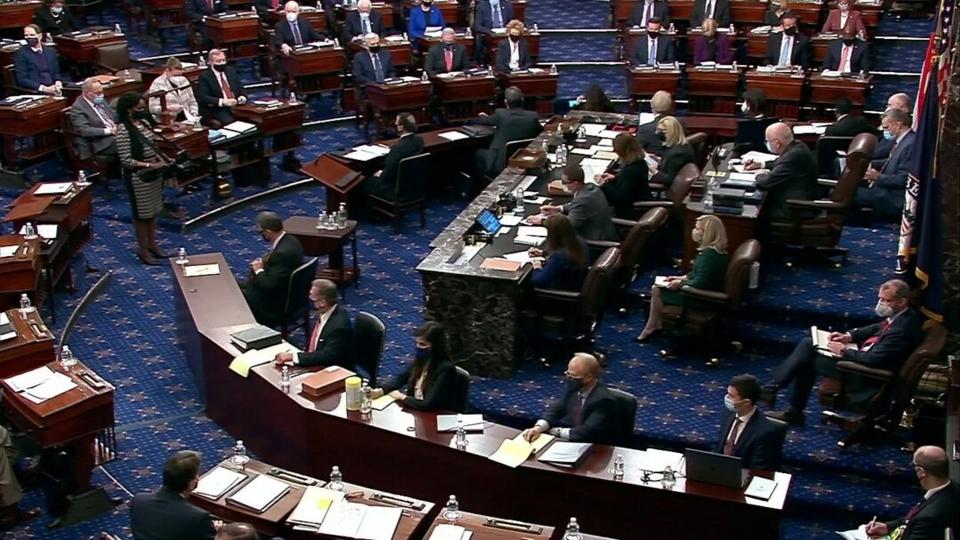Tue Dec 14, 2021
Tuesday / December 14
Fed's inflation credibility
US economist Mohamed El-Erian said calling inflation "temporary" was a historically bad move for the Federal Reserve.
"The characterization of inflation as transitory, is probably the worst inflation call in the history of the Federal Reserve. And it results in a high probability of a policy mistake. So, the Fed must quickly, starting this week regain control of the inflation narrative and regain its own credibility. Otherwise, it will become a driver of higher inflation expectations that feed onto themselves," Erian, president of Queens' College of New York, told CBS television on Sunday.
US debt ceiling
US Senate Majority Leader Chuck Schumer announced on Monday that the Senate will vote Tuesday to raise the federal government's $28.9 trillion debt limit.
"The Senate will act tomorrow to prevent default," Democrat Schumer said in his speech to the Senate.
Senate Republicans have resisted voting for the debt ceiling for months, citing President Joe Biden's $1.75 trillion "Build Better" domestic spending bill, which Republicans oppose.
Democrats say the law is necessary to finance the nearly $7.85 trillion debt incurred during the administration of previous President Donald Trump, in part through extensive tax cuts and spending to fight the COVID-19 pandemic.
No specific amount has been announced to increase the current $28.9 trillion debt limit, but is expected to be in the $2 trillion to $3 trillion range. This is intended to allow Treasury Department borrowing to function normally until at least the November 2022 congressional elections.
Uyghur law
US House of Representatives and Senate legislators are close to agreeing on legislation that aims to punish China for repression of Uighur Muslims in Xinjiang, Bloomberg reported.
If Senate committees sign it and the bill can be squeezed on schedule, the deal would provide a potential vote on the bill before the end of the year.
US stocks
The S&P500 pulled back on Monday as investors remained cautious about how the omicron variant will affect the economy and what the Federal Reserve will announce on Wednesday.
The S&P500 fell 0.9% to 4,668.97. The Dow Jones Industrial Average fell 320 points to 35,650.95, a 3.7% drop in Boeing's stock. The tech-focused Nasdaq Composite fell nearly 1.4% to 15,413.28.
Airlines and cruise ship shares were the biggest losers on Monday. American Airlines fell 4.9% and Delta Air Lines fell 3.4%. United Airlines lost 5.2%. Carnival was down about 4.9%.
Xi-Putin summit
President Xi Jinping will meet virtually with his Russian counterpart, Vladimir Putin, on Wednesday, China's Foreign Ministry said on Monday.
The two leaders last met at the end of June, again via video link.
The meeting comes at a time of heightened international tensions, with Russia threatening Ukraine and China threatening Taiwan with military operations.
The US-led G7 leaders issued a statement on Sunday condemning "Russia's military buildup and aggressive rhetoric towards Ukraine."
